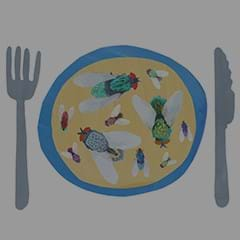Coffee and its impact on human health have been the subject of hundreds of studies as well as meta-analyses – that is, studies of other people’s studies. Mostly, at least in the last couple of decades, those studies have failed to show any evidence that coffee does harm and, in fact, some evidence that it could offer some health benefits.
It could, for instance, protect against heart disease. A large study of 25,000 adults from South Korea published in 2015 found that people who drink between three and five cups of coffee per day were less likely to have calcium deposits in their coronary arteries, which is an early indicator of cardiovascular disease.
A paper published the year before, in which researchers combined the results of 36 studies involving more than 1,270,000 people, showed that moderate coffee consumption was inversely associated with cardiovascular risk1; those who drank about three to five cups a day were at the lowest risk for coronary problems, and those who consumed five or more cups a day had no higher risk than those who didn’t drink it at all.
The news gets even better. A meta-analysis published in 2011, which included 59 studies suggests that coffee is associated with a reduced risk of pancreatic, liver, breast and prostate cancer. Another published in 2015, which looked at three big groups of health professionals, showed that drinking five cups a day was associated with a reduced chance of death of all causes, compared to people who didn't drink coffee at all.
Anyway, in 2015, the U.S.D.A. dietary guidelines (which for the first time assessed the impact of coffee on human health) concluded that three to five cups of coffee wouldn’t be bad for us, that there’s good evidence that coffee-drinking was associated with reduced risk of type 2 diabetes and cardiovascular disease, and moderate evidence of a protective association between coffee and Parkinson’s disease.
And this year the World Health Organization (WHO), which had classified coffee as “possibly carcinogenic to humans” in 1991, reviewed 500 relevant and more recent epidemiological studies, and cleared it of that classification.
A cautionary note; WHO still says there seems to be an association between drinking coffee that is too hot (more than 65C or 149F) and cancer of the oesophagus. (This is based largely on evidence of a link between cancer and maté drinking in South America, as well as animal studies.)
Of course, an “association” does not establish cause and effect, and many of the studies have limitations. There are over 1000 chemicals in coffee, some of which have credible health benefits, including substances that have been shown to reduce resistance to insulin and calm inflammation. But what compounds could be involved and how they might work has yet to be understood.
Any reduced risk of death associated with drinking coffee is also relatively small. (And by the way, it’s only black or ordinary white coffee that we’re talking about here, not the sugar-laden, creamy, chocolate flavored bucket-sized versions.)
There are reasons why some people might want to avoid anything with caffeine in it, including coffee. It's a stimulant, and can keep you awake at night, especially if you drink it in the evening. It can raise blood pressure for a short time, which can make people jittery and be problem for those with heart disease.
So maybe don’t start drinking coffee for medicinal purposes. If you want to increase your chances of living longer, coffee is unlikely to make much difference. Still, if it’s already a well-established part of your daily life, it’s nice to know you can probably stop worrying about it.







